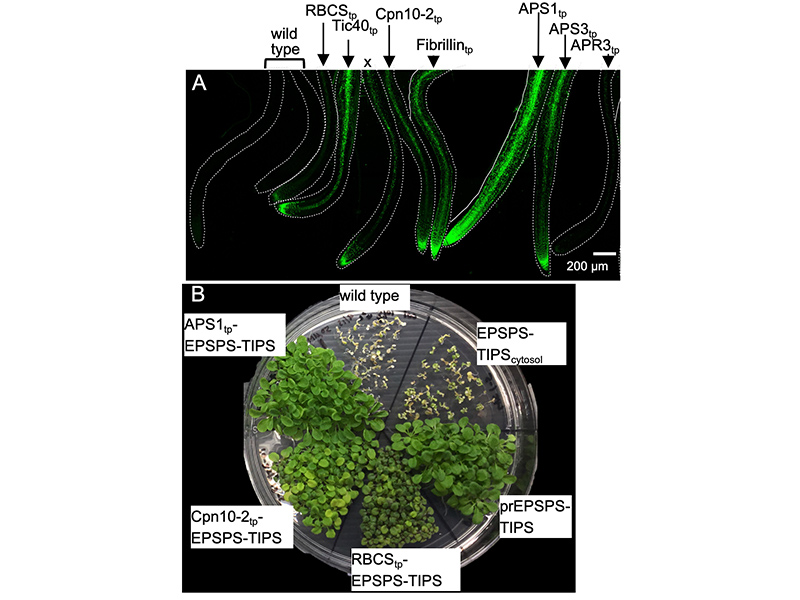High-efficiency leucoplast transit peptides for manipulating plastid protein production
Dr. Li, Hsou-min - June, 2025
Plastids develop into nutrient-storing leucoplasts in seeds and roots. Efficient protein delivery is essential to modify biosynthetic processes in leucoplasts for human needs, but no effective transit peptide for leucoplasts is currently available. Using an in vitro leucoplast import system, we have identified six high-efficiency transit peptides. Compared to a widely used chloroplast transit peptide, these peptides delivered comparable amounts of GFP into chloroplasts, but 2-7 times more GFP into root and petal leucoplasts, attesting to the advantage of screening using leucoplasts. When used to deliver bacterial phytoene synthase (crtB) into rice calli and glyphosate-resistant EPSP synthase into Arabidopsis, these peptides enhanced carotenoid production and herbicide resistance, respectively. The correlation among levels of GFP delivery, carotenoid production and herbicide resistance indicate that the efficiency of these transit peptides is consistent across plant species and passenger proteins. Therefore, transit peptide selection offers an effective way to modulate production levels of engineered proteins.

A. Roots of 5-day-old Arabidopsis transit peptide-GFP transgenic plants were examined by confocal microscopy.
B. Arabidopsis transit peptide-EPSP synthase transgenic plants grown on glyphosate-containing medium for 20 days
高效率的白色體運輸胜肽可提升GFP訊號並增強對除草劑嘉磷塞的抗性。
A. 使用共軛焦顯微鏡觀察5天大的阿拉伯芥各式運輸胜肽-GFP轉基因植物的根部。
B. 在含有除草劑嘉磷塞培養基上培養20天的阿拉伯芥各式運輸胜肽-EPSP合酶轉基因植物。